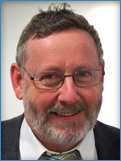National Palliative Care Week (21-28 May 2017)
 No one likes to talk about death (especially their own) but it is one of the most important conversations that you and your loved ones can ever have.
No one likes to talk about death (especially their own) but it is one of the most important conversations that you and your loved ones can ever have.
That is why Palliative Care Australia (@palliativecareaustralia) launched National Palliative Care Week to help raise awareness and understanding about palliative care in the Australian Community.
Studies have shown that up to 82% of Australians think it is important to talk to family members about their wishes but unfortunately only 28% have done so.
The Dying to Talk Discussion starter is a great resource to guide you through this difficult but very rewarding of conversations, and to make sure that when the time comes, your wishes are met.
If you do not feel that you have anyone to talk to about this, your GP would be happy to help.
Mead GPs have a passion for quality care throughout all stages of life. To explore Palliative Care in more detail we conducted a short interview with our of GPs who has a special interest in palliative care; Dr Greg Caddy:
How long have you been involved in palliative care?
I have provided palliative care to patients since I commenced training for general practice. At that time, I was doing a 6 month training position in the palliative care unit at the Repatriation Hospital Hollywood.
I have also been covering the Silver Chain Home Palliative Care service for well over 35 years.
I have spent a number of years covering the hospice unit at Kalamunda Hospital, although regrettably I have recently had to stop providing this service.
What are the some of the most rewarding aspects of palliative care for you?
I have always believed that general practice medicine should be from “the birth to the grave” . We should strive to give the best possible entry into the world but should also be able to help our patients to have a comfortable death when their time has come. This is a time when patients need to be with a medical practitioner that they know and trust . Sometimes this is more important for the family and you are never closer to family or patients than when death is being confronted.
What are some of the more challenging aspects?
It is difficult for Doctors to let go sometimes, and to confront the reality that medicine can’t keep us alive indefinitely. The reality of palliative care needs to be communicated to patients in an honest but sensitive way , often at a time when patients and their families are in the worst possible emotional place . This is difficult, but ultimately rewarding, if a good death is experienced.
There are developments over time in medicine and in the area of symptom control , and the palliative care Doctor also needs to keep up to date. They need to be prepared to involve others in the journey, dependent on patients cultural, religious and social beliefs. Patients who are dying often focus on a large number of minor issues, compared with the real problem . It is difficult at times to deal with these issues when Doctors are aware that ultimately these are irrelevant in the greater scheme of things . However, these are important to the patient and need to be dealt with so it is not perceived that Doctors have “given up ” on caring .
How important is communication in providing good palliative care?
There isn’t t a more important time for good communication than when talking with patients and their families about death. Information has to be provided at a pace that matches the station of the journey that the patient has reached. Too much information can be soul destroying. We are always judging how much information is to be given at every stage. Reassurance that things will end “OK” is paramount but this can’t occur too early . Time, gentleness and patience are needed. Honesty is required but only matched to the need for the patient and the family. Sometimes the two are at different stages .
Do you have any final comments?
Palliative care is a very rewarding, but emotionally challenging area of medicine. The reality, however, is that it is just another time of life when medical compassion and knowledge are needed and most Doctors are or should be able to give help in this area.
Latest News
Welcoming patient feedback
How Mead Medical Responds to Patient Feedback At Mead Medical, we value every piece of
Welcoming Dr Emma Johnson to Mead Medical
We're thrill to introduce Dr Emma Johnson to Mead Medical from next week. Dr Johnson


